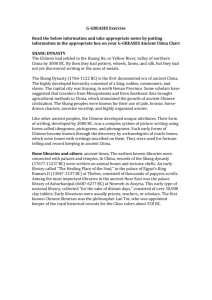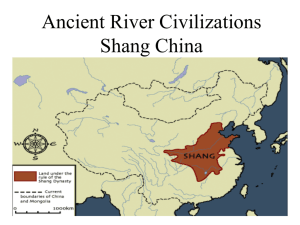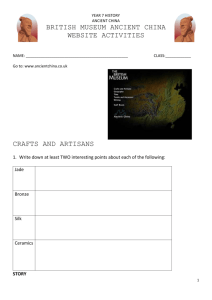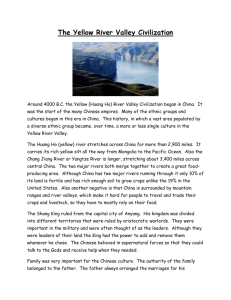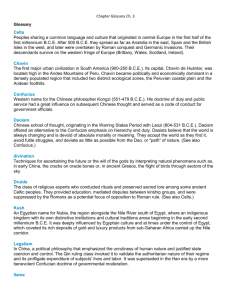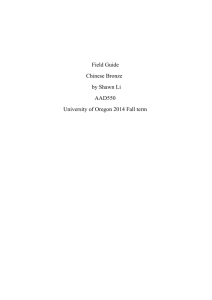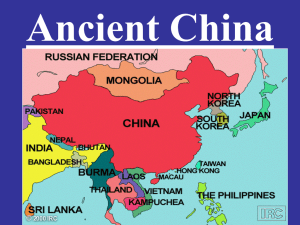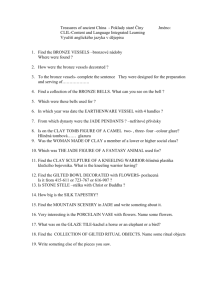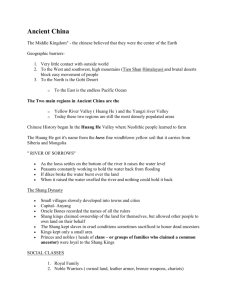Ancient Chinese Bronze Vessels recreated in Clay using flat coil
advertisement
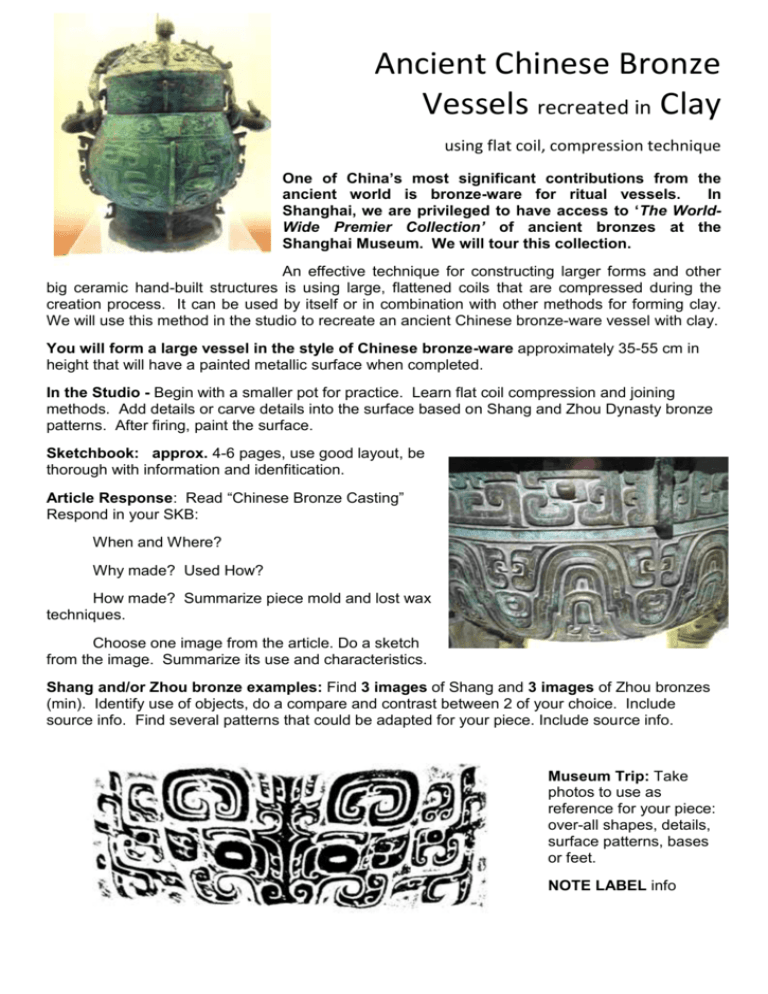
Ancient Chinese Bronze Vessels recreated in Clay using flat coil, compression technique One of China’s most significant contributions from the ancient world is bronze-ware for ritual vessels. In Shanghai, we are privileged to have access to ‘The WorldWide Premier Collection’ of ancient bronzes at the Shanghai Museum. We will tour this collection. An effective technique for constructing larger forms and other big ceramic hand-built structures is using large, flattened coils that are compressed during the creation process. It can be used by itself or in combination with other methods for forming clay. We will use this method in the studio to recreate an ancient Chinese bronze-ware vessel with clay. You will form a large vessel in the style of Chinese bronze-ware approximately 35-55 cm in height that will have a painted metallic surface when completed. In the Studio - Begin with a smaller pot for practice. Learn flat coil compression and joining methods. Add details or carve details into the surface based on Shang and Zhou Dynasty bronze patterns. After firing, paint the surface. Sketchbook: approx. 4-6 pages, use good layout, be thorough with information and idenfitication. Article Response: Read “Chinese Bronze Casting” Respond in your SKB: When and Where? Why made? Used How? How made? Summarize piece mold and lost wax techniques. Choose one image from the article. Do a sketch from the image. Summarize its use and characteristics. Shang and/or Zhou bronze examples: Find 3 images of Shang and 3 images of Zhou bronzes (min). Identify use of objects, do a compare and contrast between 2 of your choice. Include source info. Find several patterns that could be adapted for your piece. Include source info. Museum Trip: Take photos to use as reference for your piece: over-all shapes, details, surface patterns, bases or feet. NOTE LABEL info
